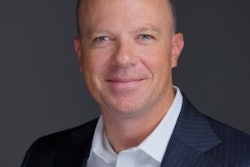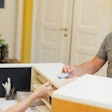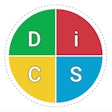
The COVID-19 pandemic is threatening the health and finances of everyone in the world. Take comfort in knowing that you are not alone, and do what you can to bring to hope to others.
We are doing our part by putting together a list of resources to help you navigate this crisis and get the financial and emotional relief to help you survive now and thrive once this is over.
 James Anderson, DMD.
James Anderson, DMD.Try the following 15 things to keep your practice's finances on solid ground:
- Apply for a disaster loan. Whether you think you will need it or not, apply as soon as possible for a U.S. Small Business Administration disaster relief loan. Apply for a loan amount that will cover your practice's loans, payments, employee payroll, and other overhead for the next six months. The administration makes it easy by allowing you to apply online.
- Stop making tax payments to the IRS. It's in your practice's best interest not to make any payments, including 2020 quarterly tax estimates. Also, remember that you have more time to file your 2019 tax returns. The deadline has been extended to July 15.
- Talk to your bank about your practice loan. Contact your bank and ask it to stop requiring you make payments. Also, ask for an interest rate reduction. If it isn't willing to lower your rate, refinance your practice loan with an institution that will.
- Contact your landlord. Many are dealing with the same problems, so call your landlord and request a rent abatement.
- Stop payments on your student loans. This can be a temporary stoppage until the pandemic passes and dentistry returns to normal.
- Reach out to your business insurance provider. Find out if your policy will cover this disruption. If it doesn't, file a claim anyway in the chance that laws change to force insurance companies to remove this clause.
- Stop automatic payments. This is a crucial time to be in control of your cash flow, so stop any automatic withdrawals from your bank account. Whenever possible, pay with checks.
- Don't pay yourself as an employee or money as a dividend. Instead, take money as a loan. This is more fiscally responsible and helps approval odds for disaster relief loans. Make sure you aren't putting yourself on payroll or receiving distributions.
- Refinance whatever you can. Refinance your mortgage, practice loan, building loan, commercial loan, and other applicable loans. Take advantage of the latest low interest rates while they are here.
- Work something out with your credit cards. If possible, lock your credit cards. If not, call your credit card companies and ask for new credit cards with new numbers to be sent to you for you to control what is being charged automatically to your cards. This will help you manage which expenses you are authorizing.
- Contact vendors and providers. Contact your utility providers, supply company, lab, and other vendors. Ask vendors for net-90 payment terms without interest, which means you make no payment for 90 days interest-free. Also, request discounts and put automatic orders on hold immediately.
- Help your team file for unemployment. Help all employees file, even those who are working reduced hours. Employees may still qualify for unemployment if they've been furloughed or if their hours have been reduced. Also, we do not recommend you lay off any team members at this time. By doing so, you may no longer be eligible for tax credits or grants available in the $2 trillion coronavirus relief bill, which was passed by lawmakers and signed by President Trump.
- Follow up on old claims. Keep your cash flow up by following up on previous claims. Insurance companies are still open and paying claims. If you or your team can't do this in-house at this time, outsource the job.
- Set up electronic fund transfer (EFT) payments. Set up EFT payments from insurance companies and utilize portal submissions for claims to ensure money gets deposited into your bank account sooner.
- Sign the ADA petition for federal disaster relief for dental practices. Add your name.
Taking these few steps can help you stay in the best possible financial standing. Our company, eAssist Dental Solutions, is available also to walk you through many of these steps.
James Anderson, DMD, is a practicing dentist in Syracuse, UT, and is the CEO and founder of eAssist Dental Solutions. He can be reached via email.
The comments and observations expressed herein do not necessarily reflect the opinions of DrBicuspid.com, nor should they be construed as an endorsement or admonishment of any particular idea, vendor, or organization.


















